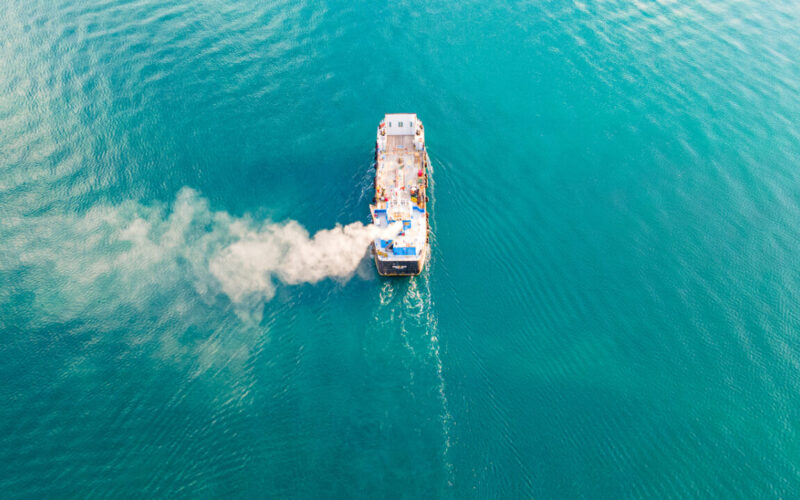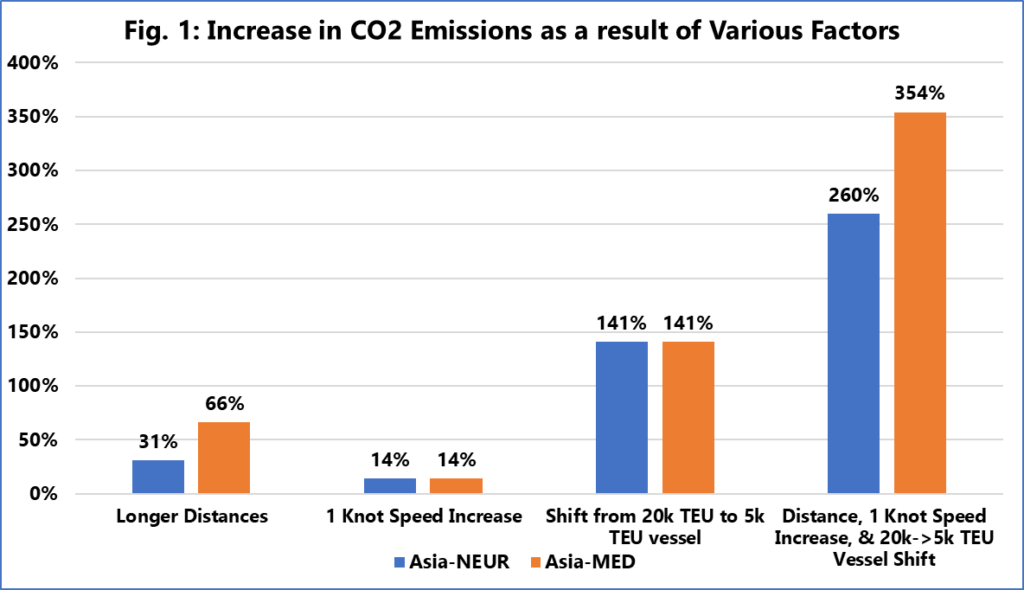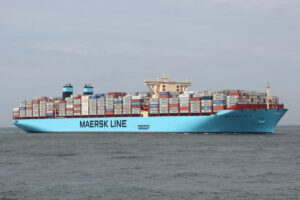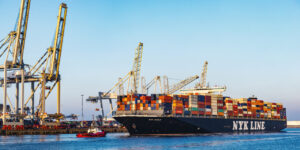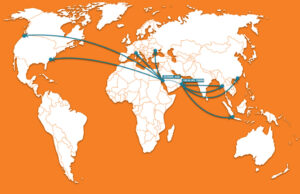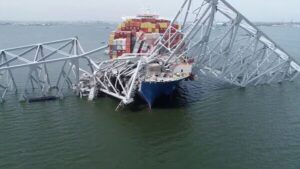Sea-Intelligence has predicted that maritime companies’ CO2 emissions would rise as a result of the ongoing Red Sea crisis.
According to Sea-Intelligence, there are three factors to consider: longer sailing lengths result in increased emissions, as do higher sailing speeds (to sustain weekly departures) and a shift from big vessels to smaller, less fuel-efficient vessels.
Sea-Intelligence used a proxy container service to estimate the size of these increases in CO2 emissions.
If shipping lines utilise the same vessels at the same speeds, emissions grow in a 1:1 ratio as sailing distances increase.
As sailing distances around Africa are on average 31 per cent and 66 per cent longer than those from Asia to North Europe and the Mediterranean, CO2 emissions will rise, at the very least.
READ: Red Sea crisis sparks second-largest capacity drop since Ever Given
If the vessels sail faster, Sea-Intelligence predicts that emissions will rise even more, because fuel consumption is not a linear function of sailing speed.
For example, according to the firm’s fuel consumption model, a one-knot increase in speed from 16 to 17 knots increases emissions by 14 per cent.
Finally, as shipping lines scramble to phase in additional capacity to cater for the longer sailing distance, Sea-Intelligence witnessed smaller, less fuel-efficient vessels being deployed on Asia-Europe.
On a TEU basis, some of these smaller vessels emit 141 per cent more CO2 than standard ULCVs.
READ: Red Sea hostility triggers spark in shipping insurance
Alan Murphy, CEO of Sea-Intelligence, said: “Putting all three components together, could lead to CO2 emissions increases of 260 per cent and 354 per cent, to North Europe and Mediterranean, respectively.
“There is no realistic way to mitigate the increased emissions, at the very least those that are due to an increase in sailing distances.”

